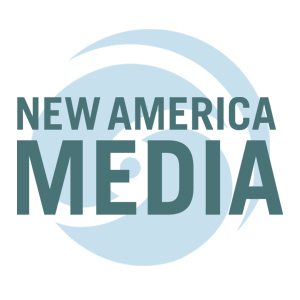Sandra Hernandez Takes Fizz Out of Coke-Sponsored Health Convention

*Love this! Sandra Hernandez is invited to do a keynote address at the National Hispanic Medical Association conference. She notices the event is sponsored by Coca Cola, that there are Coke’s sitting on the doctor’s tables. So she ditches her prepared speech and calls-out sugar as a major cause of obesity in the Latino community. She said afterward: “I want to get the next generation of Latino leadership to understand they have to take this on.” That, is how you do it. VL
 By Anna Challet, New America Media
By Anna Challet, New America Media
When California Health Care Foundation president Sandra Hernandez was asked to give a keynote speech at the annual conference of the National Hispanic Medical Association (NHMA) March 28, 2015, she was happy about the prospect of speaking to a room full of young Latino physicians about the issues of the day and how they might engage with their local communities.

President, NHMA
At the Washington, D.C. conference, though, she noticed something interesting for a gathering of medical professionals – one of the event’s major sponsors was Coca Cola.
A VP from Coca Cola was speaking on one of the panels about healthy lifestyles, preceded by an address from the new U.S. Surgeon General, Dr. Vivek Murthy.
There were Cokes at the tables where doctors were sitting.
For Hernandez, there was an alarming sense of sticker shock. “Here you have a company whose job it is to sell more Coca Cola, commenting about how they want to be your partners in lifestyle changes and embedded in your community. And I’m thinking, really? We have an epidemic of obesity that is slowly and methodically disabling [our communities],” she says. “I want to get the next generation of Latino leadership to understand they have to take this on.”
Hernandez scrapped her prepared speech in favor of one about the science of sugar as a chief cause of obesity, telling the packed room, “We will not exercise our way out of sugar addiction.”
Discussing the conference afterward, she says, “One of the biggest public health issues facing our country today is the obesity epidemic. It has economic implications, it has health care implications, it has quality of life implications. We’re expending enormous amounts of health care costs to treat all of the conditions that are exacerbated by the obesity epidemic, to which sugar is a contributing factor.”
And in an era of soda tax initiatives like the one that failed in San Francisco last November, Hernandez says, “The industry is going to spend a lot of money to maintain the status quo. We saw that in San Francisco … Organizations that are doing all kinds of good work have to think about corporate sponsorships and partnerships.”
It’s a common dilemma for nonprofits like the NHMA – to what extent should financial sponsors reflect the mission of the organization? If there’s a conflict of interest, where is the line drawn? “These are always tough calls,” Hernandez says. “The corporate sector is very savvy in thinking about demographics they’re trying to reach. It’s hard to be a purist. That said, if you’re trying to reach the next generation, you want them to be able to see with clarity the things that have become so normalized.”
She compares the ubiquity of soda to the pervasiveness of cigarettes in the past. “We sued tobacco. We require labels on tobacco. We stopped [allowing] marketing the way tobacco had been marketing in my generation. My 14-year-old daughter has never met the Marlboro Man or seen him on TV. From a public health point of view we’ve made significant strides in curtailing tobacco use culturally. And here we are now with this obesity epidemic,” she says. “This does not have to be this way any more than smoking had to be so deeply embedded in society in the 1950s and 60s.”
And the need for corporate sponsorships, she says, need not preclude honest conversations. “For me, the Coca Cola folks being there was not the problem,” she says. “It’s the notion that if we don’t actually see with clarity that sugary drinks are a huge contributing factor to the obesity epidemic, and talk about it explicitly so people can see it for what it is, then we’ve missed an incredible opportunity to think about leadership. Because leadership takes on top issues, and Coca Cola is deeply culturally embedded in our communities.”
This article was originally publihed in New America Media.
Anna Challet is a reporter and project manager with New America Media working on issues related to young people’s health.
[Photo by Mark Singleton/Flickr]

